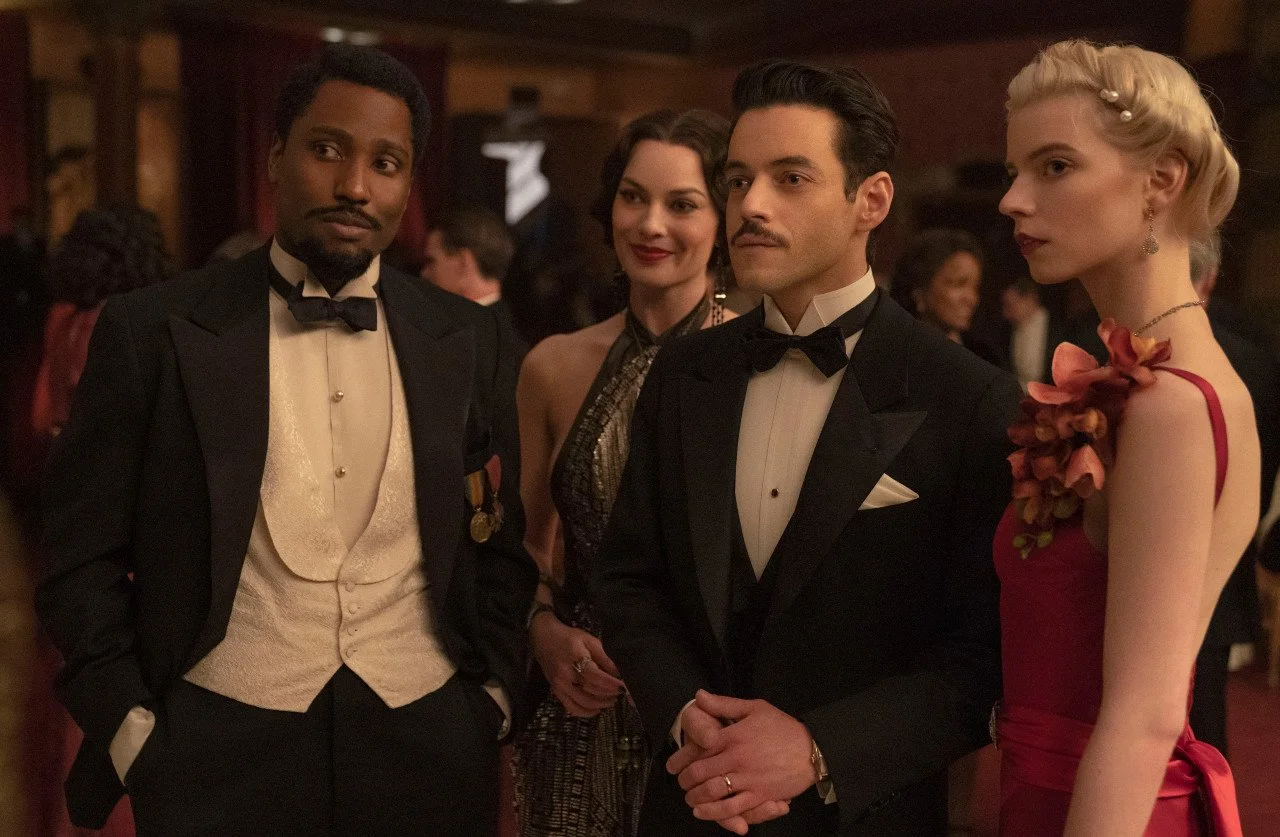Amsterdam: Director David O. Russell’s Anticipated Return as Sloppy as It Is Starry
By Thom Ernst
Rating: C
The first line of Amsterdam belongs to Christian Bale. It’s a voiceover. It’s a “here’s a story” opening adding nostalgia to a movie already planted in the past, a hand-held narrative guiding us to the centre of the plot so the story can begin.
I cringe because voiceovers, even ones given by Christian Bale, can play like an 11th-hour device designed to talk an audience through a story they wouldn’t be able to work through on their own. I can’t say that clarity is the reason for this use of voiceover, but if it were, then perhaps we can use a bit more.
Amsterdam is the return of director David O. Russell, who has been M.I.C. (Missing in Cinema) since 2015’s Joy—and who among us has seen that?
So, a bit of Russell catch-up: Russell got my attention with his whacked-out debut, Spanking the Monkey (1994). He followed up by adopting a similarly farcical style with Flirting with Disaster (1996). Three Kings (1999) was less farce, more heist, surprisingly funny—and with that, Russell pulls off a hat trick.
Then there was I Heart Huckabees (2004), a full-on cast in a full-on farce and a full-on flop—including embarrassing footage of the director screaming at veteran movie star Lily Tomlin on set during filming.
For the next several films, Russell drops the farce and finds a new and better footing in pseudo-romantic dramas. He does three more films—The Fighter, Silver Linings Playbook, and American Hustle—another hat trick.
Leaping over Joy (2015) we arrive back at Amsterdam. It’s Russell’s return to farce, but the memory of Huckabees is still too fresh to set me up for another letdown. Or maybe enough years, and enough films, have come in between to warrant my trust.
Amsterdam is full of quips, cocked heads, characters peeking around doorway frames, and a cast of single-purpose characters. It’s a rapid-fire onslaught of scenes, dialogue, and characters. Russell fans will cling to the belief that there is something at the end of this mess; others will likely give up early on.
Russell drifts—rather sprints—through the story without instilling any confidence that he knows where it’s all heading. But then there is that cast: the beforementioned Bale, Margot Robbie, John David Washington, Chris Rock, Michael Shannon, Mike Myers, Anya Taylor-Joy, Zoe Saldana, Taylor Swift, Rami Malek, Beth Grant, Timmy Olyphant, and Robert De Niro, each one worth watching, each one worth listening to.
Bale wanders from frame to frame with the bent energy of Al Pacino as Bert Berendsen, a virtuous doctor a bit out of step with the politics of his zip code. There is Robbie—the most watchable star on the big screen—as Valerie Voz, a woman who forbids herself the one thing she wants above all else: the right to a forbidden romance.
Voz is in love with Harold Woodman, played by John David Washington. Berendsen, Woodman, and Voz form an unlikely alliance in the final days of WWI while sharing a time together in the more racially accepting Amsterdam.
Berendsen dedicates his practice to repairing the faces of veterans maimed in battle. He’s bullied by disapproving in-laws into enlisting to help end the war meant to end all wars because altruism is a poor calling card next to heroism.
Also, Berendsen happens to be half-Jewish, and in need of a proper pedigree if he hopes to be worthy of the Vandenheuvel’s daughter and their zip code. And so Berendsen enlists and heads a troop of Black soldiers grievously mistreated by the very army of which they serve.
But I’m getting ahead of myself; this is just a flashback. The real story is yet to come.
It will take a while.
First, there is this:
A General’s daughter (Swift sans cat-suit) approaches Berendsen and Woodman to find out who killed her father—if, in fact, he was killed. Off they go on the lam until they can clear their name. But instead of solving a possible murder, Berendsen and Woodman become the lead suspects in an actual murder.
In step, Shannon and Myers (the latter resembling a differently aged Michael York) who—as much as I can figure out—are special agents masquerading as police officers masquerading as bird-enthusiasts.
Into the mix is De Niro as Gil Dillenbeck and Grant as the General’s wife.
Rock is here as Milton King. He wants to be the funniest person in the room and comes through on delivering lines like it was stand-up. Occasionally King’s righteous rage (and it is righteous) seems a bit out of step with the times and more in keeping with a Netflix comedy special.
Amsterdam is Russell as Wes Anderson, who confuses Robert Altman for Peter Bogdonavich. I’ll break it down for you; Amsterdam is quirky (Anderson) with a multitude of characters (Altman) in a mad-cap plot (Bogdonavich). Sometimes it works; most of the time, it just tries to work.
The film wants us to have fun but doesn’t want us to pass the film off as harmless nonsense—even while hammering into the story a reoccurring nonsense song. In the end, the film makes sense—somewhat—but not in an organic way that the audience can feel that they’ve come to the knowledge themselves.
Surprisingly, Amsterdam cumulates into a rather satisfying conclusion so that even if we leave the film without knowing what just happened to us, we at least can feel good about it.
Amsterdam. Directed by David O. Russell. Starring Christian Bale, Margot Robbie, John David Washington, Chris Rock, Michael Shannon, Mike Myers, Anya Taylor-Joy, Zoe Saldana, Taylor Swift, Rami Malek, Beth Grant, Timmy Olyphant, and Robert De Niro. In theatres October 7.



